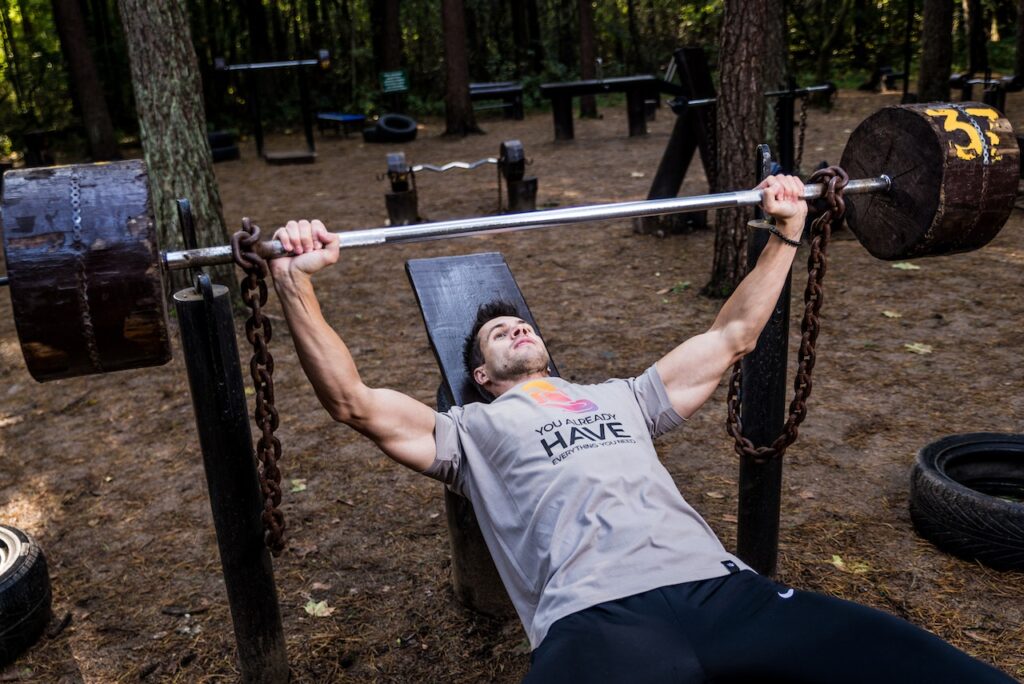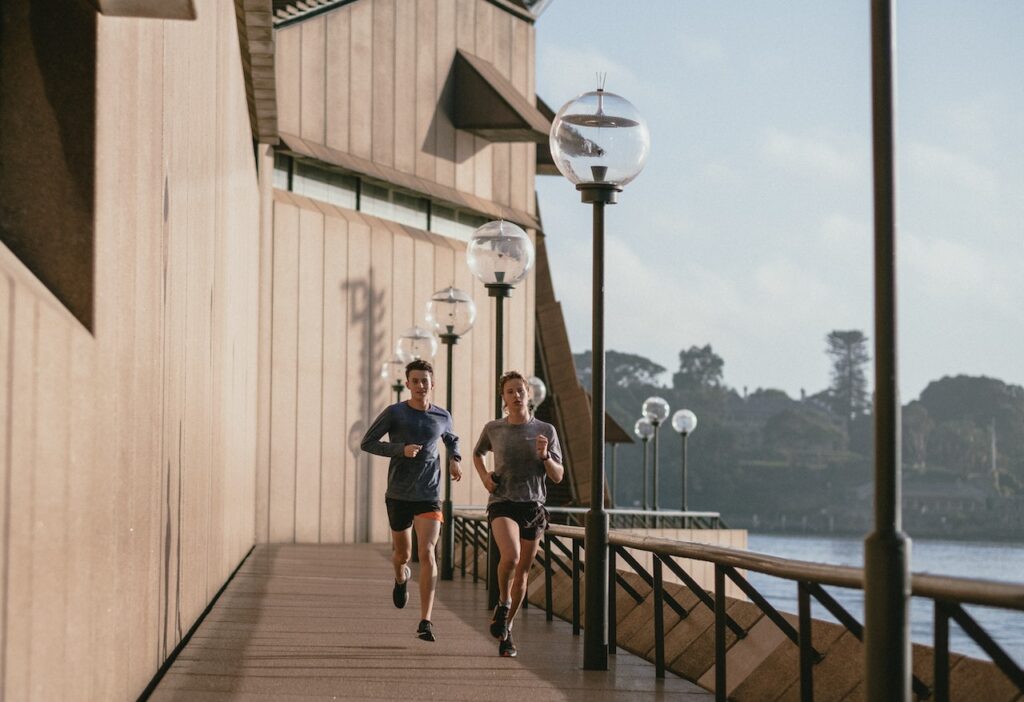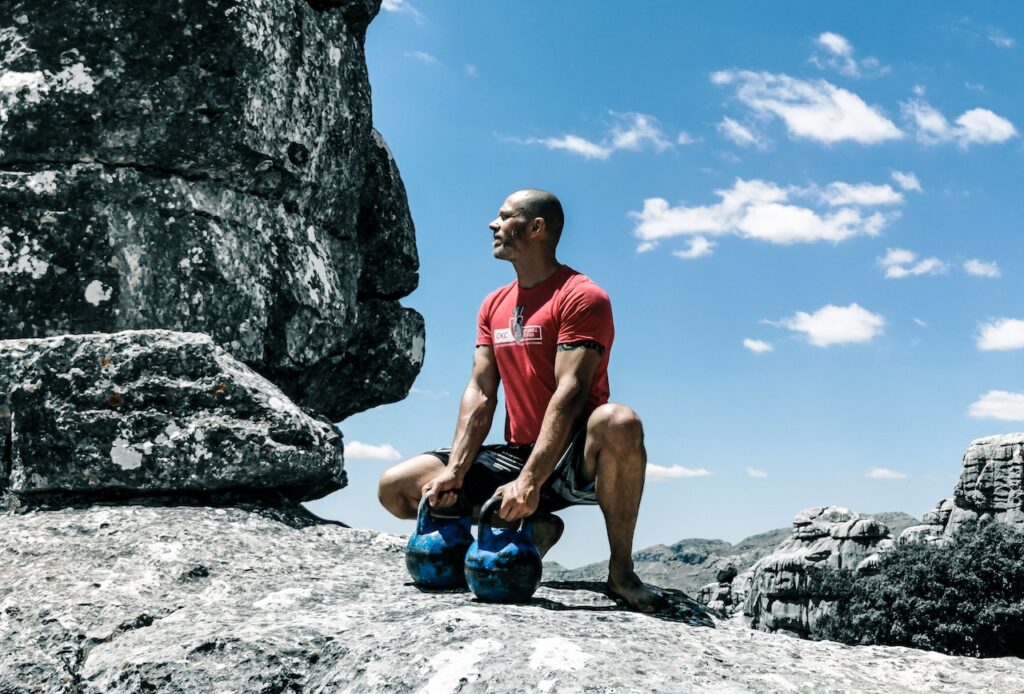Considering the Space
The first step in setting up an outdoor home gym is assessing the available space. You could have a sprawling backyard or a small patio, but the key is to utilize the space effectively.
- Size: The size of your space will determine the type and quantity of equipment you can fit.
- Layout: Consider the natural layout of the area. Do you have a flat surface, or is it hilly? Are there any permanent features like trees or a pool that you need to work around?
- Privacy: For some, privacy might be an essential factor. If that’s the case, consider adding privacy screens or tall plants around your workout area.
- Shade: Don’t forget the impact of weather. An area with some natural shade can be beneficial for summer workouts.
Read our article to choose the right home gym equipment for your needs.

Choosing the Right Equipment
Once you have a good understanding of your space, it’s time to select your equipment. For an outdoor gym, consider durability, versatility, and weather resistance.
- Durability: Opt for equipment made of sturdy, rust-resistant material.
- Versatility: Choose pieces that allow for a range of exercises, like kettlebells, resistance bands, and adjustable dumbbells. A pull-up bar or a TRX system could be excellent additions too.
- Weather-resistance: Ensure your selection can withstand the elements. For instance, rubber or neoprene-coated dumbbells are more weather-resistant than iron or steel ones.
Free weights or resistance bands? Find out which is best for you.
Creating the Right Ambiance
An inviting ambiance can make your outdoor workout sessions more enjoyable and motivating.
- Lighting: If you plan on working out in the early morning or evening, proper lighting is essential. Solar-powered lights can be an energy-efficient option.
- Music: Install outdoor speakers to play your favorite workout playlist.
- Nature: Incorporate elements of nature. Whether it’s a view of your garden, potted plants around your workout space, or even the sound of a nearby water feature, these can enhance your workout environment.
By considering these aspects, you can create an outdoor home gym that not only meets your fitness needs but also provides an inspiring and energizing space to exercise.

Safety Precautions
Safety is a critical factor when setting up your outdoor home gym. Here are some points to consider:
- Flooring: Ensure the ground where you’ll be placing your equipment is flat and stable. Consider installing safety mats or rubber flooring to provide cushioning and prevent injuries.
- Equipment placement: Organize your gym equipment thoughtfully to avoid accidents. For example, store your dumbbells on a rack rather than leaving them on the floor where they could be a tripping hazard.
- Check the equipment: Regularly inspect your equipment for any signs of wear and tear, particularly if it’s exposed to the elements.

Maintaining Your Outdoor Gym
Maintenance is key to extending the lifespan of your outdoor gym equipment.
- Cleaning: Wipe down your equipment after every use to remove sweat and dirt. Use appropriate cleaners for the different materials.
- Weather protection: If your equipment isn’t weatherproof, consider using protective covers or storing items indoors when they’re not in use.
- Routine checks: Regularly inspect your equipment for any damage, especially after extreme weather conditions.
Staying Motivated
Maintaining consistency is crucial to reap the benefits of your outdoor home gym. Here are some motivation tips:
- Establish a routine: Designate specific days and times for your workouts and stick to them.
- Set goals: Having fitness goals can provide a sense of purpose to your workouts.
- Track your progress: Keep a record of your workouts and any progress you make towards your fitness goals.
- Mix it up: Vary your workout routines to prevent boredom and keep things interesting.
Struggling with consistency? Read our tips on staying motivated.

